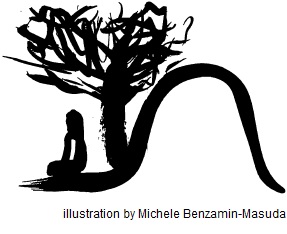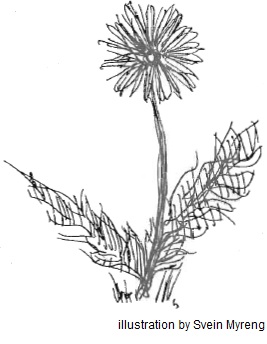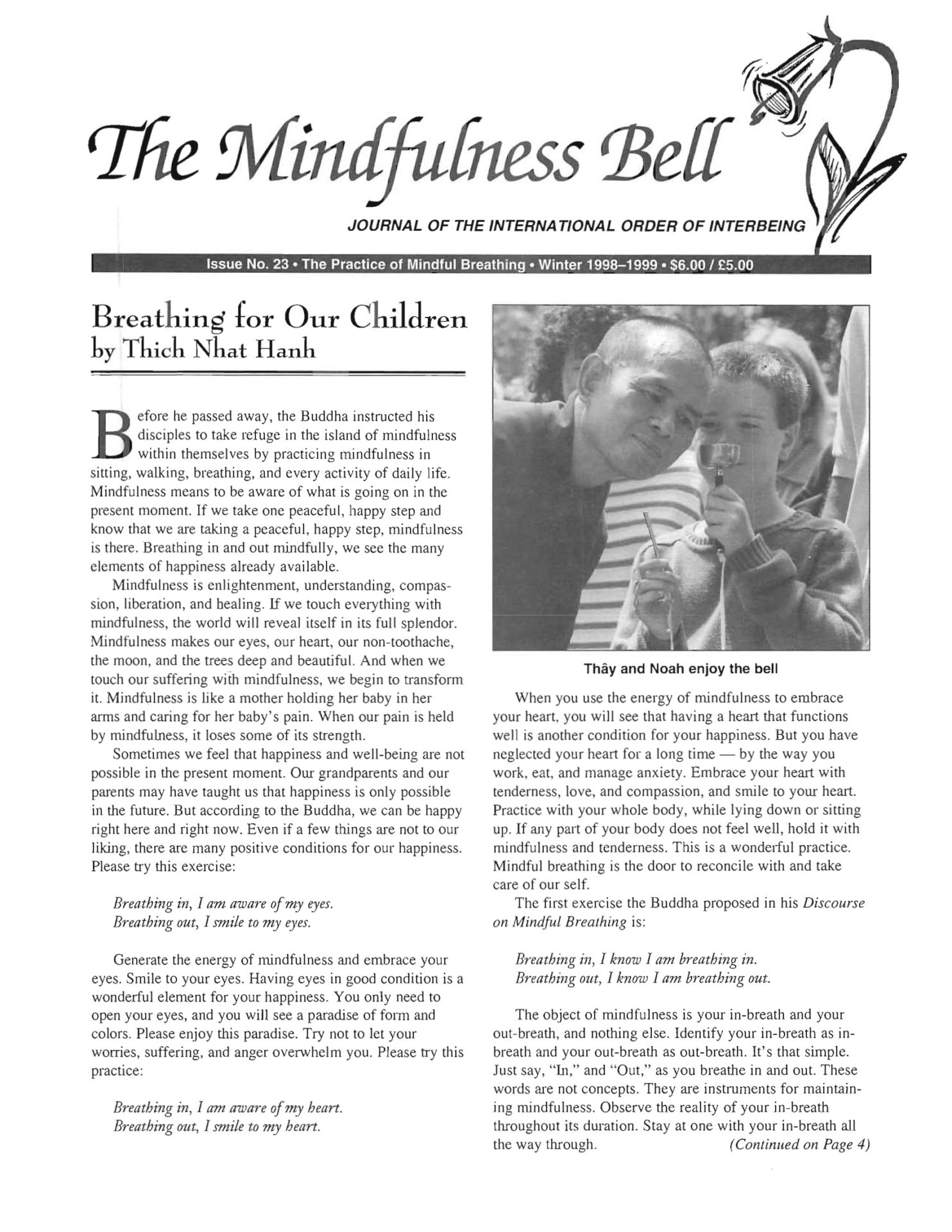By Jennifer Shumaker
Driving from Arkansas through Taos and the Carson National Forest, I had plenty of time to fantasize about the next six days. I was on my way to a mindfulness retreat with Therese Fitzgerald, Wendy Johnson, and a group of practitioners from activist professions at the Vallecitos Mountain Refuge in northern New Mexico. We have been told to expect no electricity- no phones or E-mail to lure us away from the wilderness.
By Jennifer Shumaker
Driving from Arkansas through Taos and the Carson National Forest, I had plenty of time to fantasize about the next six days. I was on my way to a mindfulness retreat with Therese Fitzgerald, Wendy Johnson, and a group of practitioners from activist professions at the Vallecitos Mountain Refuge in northern New Mexico. We have been told to expect no electricity- no phones or E-mail to lure us away from the wilderness. The extraordinary blue of the Western sky with the pure white puffs of cloud promised a sense of clarity. Yes, this would be a break from everyday stresses, and a chance to clarify and strengthen my commitments among a safe and supportive group of strangers in a healing, untouched wilderness environment.

Our retreat fantasies of balm and beauty seldom include the pain and exhaustion it takes to transform our unhealthy mental formations, nor the joy and exhilaration at insights gained as a result of this work. Therese knows some of my mental formations, and, like the caring teacher she is, refuses to let me hide behind them. The inevitable test comes on the first evening. Would I be bellmaster, as part of my Order aspirant training? What? Didn't she remember my complete bungling of the job in Arkansas two years ago, . when we had a new bell with no ringer, and I had to use a piece of wood stripped from a log by the fireplace? With each strangled ring that was an insult to the beautiful new bell, my shame felt stronger until I had asked if I could resign my job. Of course, she said that it would be better for me to stay with it-that the bells were fine if I could just accept them, along with perhaps myself?
The second test for me was the short self-introductions we gave. Of all the things I could say in five minutes, I always end up saying something that leaves me feeling slightly vulnerable. Yes, I surely misrepresented who I am, and everyone else sounded so much more interesting. How much easier it would be if we all just kept silent with our small, private vulnerabilities. But the strangers felt less like strangers by the second day, and relationships were budding. We have made friends with the 650-year-old Ponderosa Pine-the oldest in Carson National Forest, with one of its few remaining groves of the old growth forest, and the Vallecito "river" (a stream in any other state except perhaps Arizona) that bubbles and gurgles through meadows of wild flowers. Surely this is one of the few remaining pieces of untouched heaven on earth.
The third day is the true test. The place and the people are no longer strangers, and some risky reaching-out in friendship is starting. During the walking meditation, I follow Wendy's suggestion and offer my hand to someone. Wrong move! The gesture brings tears to the eyes of the new friend, and tears turn to sobbing that prevent her from finishing the walk with us. Besides, with two days of sitting and mindfulness under my belt, it is harder for me as well to ignore the feelings of unworthiness that constantly linger at the edges of my consciousness. My bells have not been uniformly perfect. Nothing like the beautiful sound that comes when Therese or Wendy rings it. I have become so nervous when ringing it that my hands are too sweaty to control the ringer, and it keeps slipping. This interrupts my counting of three breaths between rings, and Therese is having to help count. I wonder if she would accept my resignation this time?
During Dharma discussion that afternoon, all our smooth veneers are peeling away, and feelings start to break loose. Therese's morning Dharma talk had been about feelings, with anger an obvious focus. One brave person in the group told of the fear that was arising in her and keeping her awake at night. She had heard of a man in the other discussion group who realized he was holding the chronic anger that is common among activists facing injustice every day. This woman was recovering from an abusive experience with an angry man, and the raw fears that resurfaced were disrupting her retreat experience. This seemed unfair-surely at a retreat like this people shouldn't have to be afraid. Another man offered that irritation belongs in the category of anger, and that his irritation had been fierce at the lack of silence during certain periods of the day, like morning work-time and a couple of hours in the afternoon. Therese had told us we could wear a sign that indicated we would prefer to remain silent. This man didn't want to appear aloof so he didn't wear one, but when people spoke to him or near him he felt very annoyed with them.
For reasons I couldn't understand, this statement started me shaking and sweating. Therese looked at me (to urge me to ring the mindfulness bell) and 1 thought she was encouraging me to speak. I mumbled something about feeling terribly sad suddenly-that I couldn't explain it, except to say as children we had never been allowed to feel anything except happy. Something snapped in me, and I couldn't stop sobbing. At the end of the session (I can't even remember ringing the bell), Therese came and hugged me and told me not to hold back, to let the heaving sobs that threatened to take me over just come. She suggested I go to the grandmother Ponderosa Pine and I took her advice. While everyone else went to meditate, I stumbled to the tree and flung my arms around it. The sobs were so dramatic that I was hyperventilating, and I couldn't even tell whether I was sad or angry, let alone what was behind all this. After lying exhausted in the field of white daisies that seemed to be trying to rock me in the breeze, I joined the others for dinner. Somehow I managed to ring the bell for the evening meditation, although my body was so exhausted that I couldn't keep my balance during the walking meditation.
That night I had nightmares. In one particularly vivid dream, some colleagues from work were upset about my imperfect bell-ringing. I kept telling them that I am fine and feel great joy when I work with low-income community groups, but that I can't perform among peers without feeling shameful and bungling it. During the morning walking meditation, I happened to look over at the man who was irritated by the lack of complete silence, and felt the sobs coming back. But this time, while sitting again, I followed Thay's advice. I named the feeling-it wasn't anger, sadness, or hurt, it was shame. Yes, hello shame, my old companion. I imagined embracing it like a small child in my arms, and tried to look deeply at it. Where did it come from?
Suddenly, in the space of my breathing, I had a great burst of insight. The irritated man and my colleagues from my dream were acting like my father and other family members in my home as I grew up in South Africa. I have always known that as the youngest child I was too noisy and excitable-singing too loudly, moving too fast, and talking too much, especially in the evenings when my father wanted silence. The new part of my insight was the realization that I was not intrinsically an irritating person. My father had his first heart attack the day I was born, and died of his fifth heart attack when I was 15 years old. This means that during my whole childhood, he was on heart medication that gave him a constant headache. My infant cries, toddler energy, and high spirits were like a constant piece of sand in his shell. Perhaps the irritated man at the retreat was not annoyed with me because I was intrinsically an irritating person, though I was certainly one of the people who talked to him when he secretly wanted silence. This toxic, chronic shame that I have worn all my life is based on an incorrect premise.
I remembered Therese telling me two years ago that maybe I just need to accept myself and whatever sound came out of the bell. My bell-ringing had actually been fine. I allowed myself to remember that a couple of people had actually told me that they had appreciated my fine bell-ringing. I hadn't even heard them because I knew that, being noisy and imperfect, it must be irritating everyone.
That morning in outdoor walking meditation, the sky was especially clear and blue, the white daisies glistened, and the Ponderosa Pine stretched its gnarled, loving arms out to me. I wanted to run through the meadow singing about the hills being alive like the nun in The Sound of Music. Especially I wanted to throw my arms around Therese and the irritated man for bringing me to a point of understanding that would make my whole world look different from now on. I remembered Thiiy's urging us to thank the garbage in our lives. Garbage transforms into compost when the light of mindfulness is shined on it, to fertilize all the healthy seeds in ourselves and in those around us.
As if to echo this sentiment, the woman who had struggled with sobs when I had held her hand early in the retreat came to me and offered to lend me a baby quilt her mother had given her as an infant, to keep me warm during the anticipated chill of the planned outdoor meditation that evening. I knew what she was feeling. And in Dharma discussion, the woman who was afraid of anger told us how she had realized during the retreat that she also carried around constant anger without even knowing it. Now she could work on it and perhaps finally come to grips with her past abuse. And the irritated man was amazed when I told him what he had done for me. He hadn't felt irritated with me at all. And in spite of the lack of silence, he had decided he wants to be trained to join the Order of Interbeing.

This was a true Sangha experience. The best Sanghas and retreats cast our mental formations into a mirror we must look into, in a safe and supportive environment that is a gem most of us don't find anywhere else in our frantic and busy lives. Another image from Thay's teachings became clearer. Thiiy talked about the way that meditating, being mindful, and following the Trainings help our hearts grow large and spacious so we become like huge lakes of clear water. If some hurt person throws salt into our lives, the spacious, clear water can absorb the salt without turning sour. That same amount of salt thrown into the cup of water of a constricted heart would be poisonous. So retreats and Sanghas should not try to avoid salt. That person who is angry or irritated or too affectionate might be exactly what we need to expand our hearts and transform our personal garbage into blossoms of joy. Thank you, Dharma teachers. And thank you, Vallecitos Refuge. Indeed, your hills came alive for me.
Jennifer Shumaker, Radiant Jewel of the Source, is a community development resource person and practices with the Ecumenical Buddhist Society in Little Rock, Arkansas.

